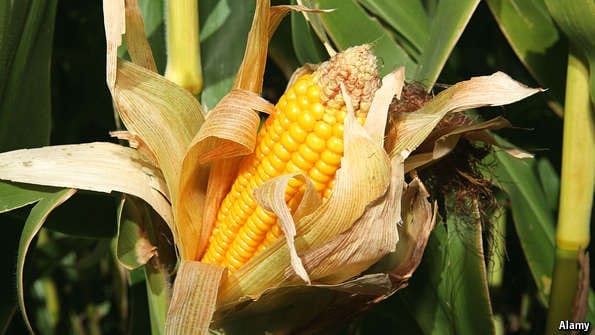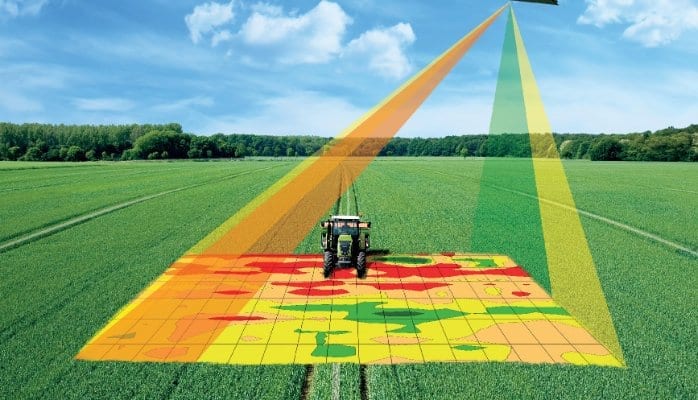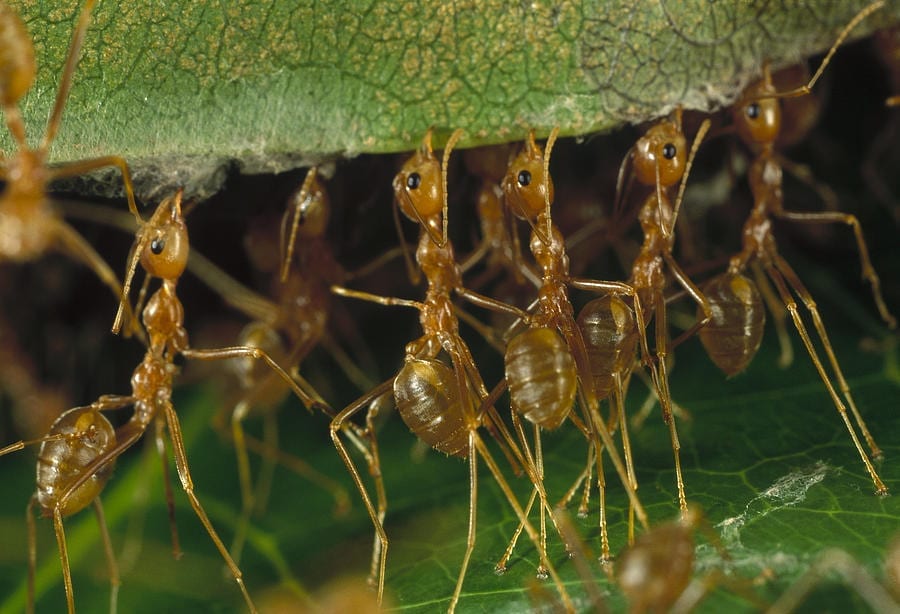
SIX companies dominate the business of farm supplies. The interest of Monsanto, the world’s biggest seed producer, in buying Syngenta, the largest agrochemicals firm, had threatened to whittle them down to five. That raised worries about whether the reduction in competition would mean less innovation—and thus slower improvements in crop yields—as well as higher costs for farmers.
However, Syngenta played hard to get. It rebuffed a bid of $45 billion in June. And another, made on August 18th, worth around $47 billion. So, on August 26th, Monsanto walked away. But consolidation of the industry may be in prospect anyway. The takeover battle stimulated the interest of other big agricultural suppliers: BASF, another of the big six, had reportedly sought financing to make a rival offer for Syngenta. And Monsanto itself may not be done. Next year the firm may set its sights on another target, reckons John Klein, an analyst at Berenberg, a bank.
Two decades ago the industry was far more fragmented. In 1994 the top four companies in the worldwide market for seeds and crop biotechnology had a combined share of 21%. By 2009 the top four’s share was 54%. Similarly, in agrochemicals, the top four’s share rose from just over a quarter to more than half over that period. But the pressure for another round of consolidation remains.
Low commodity prices, which are beginning to curb farmers’ spending on supplies, are one reason for that. Another is plants’ growing resistance to old herbicides. Monsanto has enjoyed rich rewards from its weedkiller, glyphosate, sold as “Roundup”, and from “Roundup Ready” seeds that it has genetically altered to withstand the chemical. But the weeds are fighting back. A study published in 2013 by the Union of Concerned Scientists found that weeds resistant to glyphosate are present in more than half of America’s farms. Monsanto is developing crop seeds resistant to dicamba, another herbicide, and plans to spend perhaps $1 billion or more on a plant to produce the chemical. This will somewhat help it bear the embarrassment of Syngenta’s rebuff. But buying a big rival would further secure its grip on the market.
Syngenta’s boss, Mike Mack, argued that Monsanto’s bid showed that it lacks “fundamentally new innovation” to drive its growth. Monsanto’s purchases in recent years of several firms that provide farmers with detailed data on local soil and climate conditions are “just cover for the fact that their core markets have been saturated,” Mr Mack said. Others disagree. Mr Klein says precision farming, possible thanks to troves of data, remains “enormously important” for American agriculture.
Read more: Agricultural suppliers – Controversial hybrids
The Latest on: Agribusiness
[google_news title=”” keyword=”Agribusiness” num_posts=”10″ blurb_length=”0″ show_thumb=”left”]
via Google News
The Latest on: Agribusiness
- Nigeria seeks strategic partnership for agribusiness, food security in USon May 8, 2024 at 11:13 pm
Yusuf Tuggar, Nigeria's Minister of Foreign Affairs, has reiterated that the Federal Government is dedicated to ensuring food security ...
- Meister Media Worldwide: AgriBusiness Global Announces 2024 Event Line-Up: Connecting Crop Input Leaders Worldwideon May 8, 2024 at 3:19 pm
AgriBusiness Global, the premier business source for leaders in the global crop input value chain, is thrilled to announce its lineup of events ...
- AgriBusiness Global™ Announces 2024 Event Line-Up: Connecting Crop Input Leaders Worldwideon May 8, 2024 at 2:59 pm
AgriBusiness Global, the premier business source for leaders in the global crop input value chain, is thrilled to announce its lineup of events for 2024. For 37 years, AgriBusiness Global has been the ...
- TGIF Agribusiness Limited IPO Opens Today: Check Key Dates, Price Band And Other Detailson May 8, 2024 at 2:06 am
In a bid to sow the seeds of expansion and innovation in India's agricultural landscape, TGIF Agribusiness Limited, formerly known as ARV Farmpro LLP, is set to embark on a journey with its Initial ...
- TGIF Agribusiness IPO: Issue size, GMP among key things to know before subscribingon May 7, 2024 at 9:37 pm
The company is primarily a horticulture company engaged in open farming of certain fruits and vegetables. Its farmland is spread over an area of over 110 acres and is situated in the vicinity of three ...
- Mining, big agribusiness, and fossil fuel sectors linked to over 600 attacks against 20,000 human rights defenders in 2023on May 7, 2024 at 10:04 am
A new report has once again revealed the scale of attacks against human rights defenders protecting land and communities from corporations.
- Oyster Agribusiness Wins Promising Company Of The Yearon May 7, 2024 at 4:43 am
Oyster Agribusiness has been recognized as the Promising Company of the Year at the second edition of the Ghana League Awards (GBLA) 2024, a scheme that acknowledges industry leaders based on their ...
- Expansion plans and branding tweak for Muir family agribusinesson May 5, 2024 at 4:00 pm
Founded by Edward Eric Muir at Melbourne's Victoria Market in 1927, his farm inputs supply shop was further developed and expanded by his son, Max, and later grandsons, Ric and Ian who joined in 1969 ...
- Makinde: We’ll make Oyo Modern Agribusiness Hub in Africaon April 29, 2024 at 7:40 pm
Oyo State governor, ‘Seyi Makinde, yesterday, reiterated his commitment to making the state a modern agribusiness hub in Sub-Saharan Africa, just as he promised to give more support to farmers and ...
- We’ll Make Oyo State A Modern Agribusiness Hub in Sub-Saharan Africa, Says Governor Makindeon April 29, 2024 at 2:37 pm
Oyo Governor Makinde has promised to improve infrastructure and security with a view to attracting large investments in agriculture.
via Bing News










